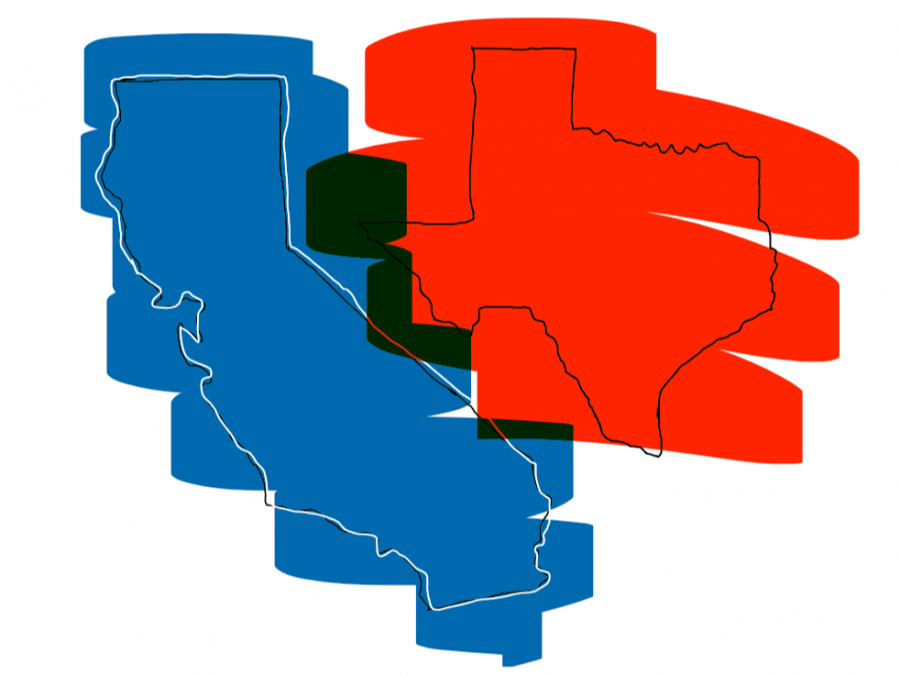California v. Texas: Will the ACA come to an End?
February 9, 2021
On November 10th, 2020, eight months after it was granted by the Supreme Court, the case California v. Texas was argued. The case’s central issue was the Affordable Care Act, one of the most groundbreaking and controversial pieces of legislation passed by Congress in the 21st century. Specifically, the individual mandate of the ACA was the provision in question. The Court has yet to issue its decision, but its conclusion could very possibly strike down the entire ACA.
It is easy to see why the Supreme Court is approaching the case so cautiously. When the Act was first passed in 2010, the individual mandate was, by far, one of its most contentious aspects. The mandate required all U.S. citizens and legal residents to purchase health insurance by implementing a penalty for individuals without coverage [1]. Proponents of the mandate cited the necessity of lowering the cost of healthcare for those with pre-existing conditions. They argued that if only those with pre-existing conditions were buying healthcare, the premiums would skyrocket.
This, of course, faced heavy attack by Congressional representatives, mostly Republican, and everyday citizens alike. To these groups, Congress was overreaching its powers granted in the commerce clause and taxing healthcare was a breach of the Constitution. They also reasoned that the commerce clause allowed Congress to regulate those within a market, not outside of it [2]. The Supreme Court, in National Federation of Independent Business v. Sebelius, agreed that the Commerce Clause did not allow Congress to legislate the mandate, but they also decided that the Taxing and Spending Clause did allow for such legislation [3]. The Taxing and Spending clause gave Congress taxing powers and thus, the individual mandate was maintained as a “tax”.
Since the landmark decision in NFIB v. Sebelius, much has changed regarding the mandate. In 2017, under the Tax Cuts and Jobs Act, the tax penalty for not purchasing insurance was lowered to $0 [4]. While this did effectively eliminate the penalty, the constitutionality of the mandate and other parts of the act remained under attack. Many, mostly conservatives, demanded the entire act be struck down.
Thus, the issue resurfaced in March of 2020 when the Supreme Court agreed to hear California v. Texas, a case that could decide the fate of the ACA. Since the penalty was set to $0, Texas and several other states filed a lawsuit in federal court challenging the constitutionality of the mandate again. They argued that because of the penalty reduction, the mandate should no longer be counted as a tax and is therefore unconstitutional, with which the federal district court agreed. Furthermore, they also ruled that because the individual mandate cannot be separated from the rest of the Act, the entire ACA should be repealed. The US Court of Appeals for the 5th Circuit upheld the district court’s decision but sent the case back for reconsideration of whether any part of the ACA remains without the individual mandate. The case was then petitioned to the Supreme Court and granted in March. There were two main constitutional questions of the case: first, whether or not the individual mandate was now unconstitutional after the revisions made by the Tax Cuts and Jobs Act; second, if the individual mandate is unconstitutional, can it be separated from the rest of the ACA [5]?
And herein lies the most important question of the case. If the Court decides that it is separable from the rest of the act, then the ACA’s many provisions, such as Medicaid Expansion, establishment of state level exchanges, and the guaranteed issue provision, live on. If they decide that it is not separable, the entire act will be struck down. And if the act is completely struck down, there will be enormous future complications. The largest stakeholders are the 20 million people reliant on the ACA for health insurance. Those with pre-existing conditions, with the guaranteed issue removed, would lose many of their protections. Furthermore, an extensive set of policies relating to Medicare, Medicaid, prescriptions drugs, and other parts of the healthcare system would be reversed. While it may not all be detrimental, one can expect a period of disorder, which swift Congressional legislation may not be enough rectify [6]. On the other hand, some, mostly middle class, may see a lowered premium and private insurance companies may benefit from the lack of competition. Whatever the decision may be, it is certain that it will have an astronomical impact on the US healthcare system.
[1]http://files.kff.org/attachment/Summary-of-the-Affordable-Care-Act
[2]https://journalofethics.ama-assn.org/article/constitutionality-affordable-care-act-update/2012-11
[3]https://www.oyez.org/cases/2011/11-393
[4]https://www.healthaffairs.org/do/10.1377/hblog20171220.323429/full/




Samantha Liu • Feb 10, 2021 at 12:05 am
woohoo raymond slaying the domestic affairs section like always
Samantha Liu • Feb 10, 2021 at 12:03 am
woohoo i love this article